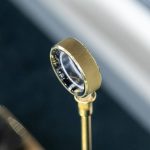She was thrust into the public spotlight after former US president Donald Trump suggested without evidence that coronavirus was leaked from a Wuhan lab.The scientific consensus says that theory is unlikely, although the WHO team is keeping an open mind and looking at all possibilities. Months earlier, in early 2020, Ms Shi had asked herself that question — whether the new virus had leaked from her laboratory.But after several sleepless nights, her team confirmed the genome sequencing of the new virus didn’t match the samples they had studied.“That really took a load off my mind … I had not slept a wink for days,” she told the magazine Scientific American in June last year. Still, her institute’s knowledge and ongoing research to map viruses in bat caves could help the WHO team, which is trying to figure out how the pandemic began.“There are quite a few coronaviruses in bats, in different countries, that are of the same sort of family, or root, that aren’t close enough to be the parent of SARS-CoV-2,” professor Dwyer said, referring to the scientific name for the coronavirus that caused the pandemic.
He stressed he and his colleagues didn’t expect the answer to their questions to be easily found in any one place.“It would be naive to think that we can walk into either the hospital, or the laboratory, or the market, and say ‘Bingo, that’s where patient zero was’ … It doesn’t work that way,” he said. “The focus needs to be more on how it came to spread to humans. That is what will protect us in the future.” He said the team, which is in quarantine waiting to begin their fieldwork, would focus on three key areas of research. “Understanding the possible animal sources of this virus … the very early human activity and infection … and understanding the epidemiology of the spread of the virus from these first few cases, they are the three areas of work,” Professor Dwyer said.One of the main advantages of doing that work in China, rather than from afar, was the scientists could meet with local researchers and study unpublished data, he said.So far, he said, the Chinese government had been welcoming and helpful. “Politics have played a role in the response to this outbreak in every country in the world … I think the key to making the politics better, is getting a better understanding of the science,” he said. “The WHO is an international organisation and has been invited by China to work through this problem, and the Chinese have offered every assistance that’s required for the mission to work. There were various hiccups along the way, but the Chinese haven’t put any restrictions on what we can do or ask.”
Powered by WPeMatico



